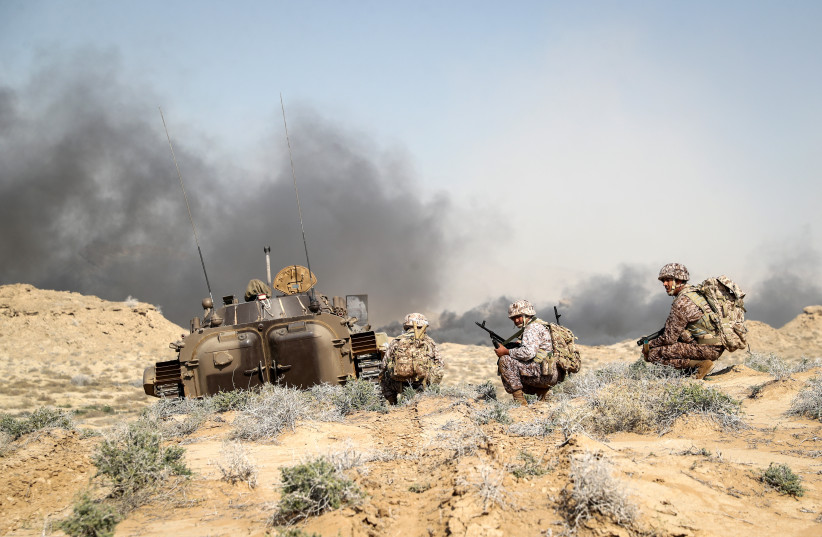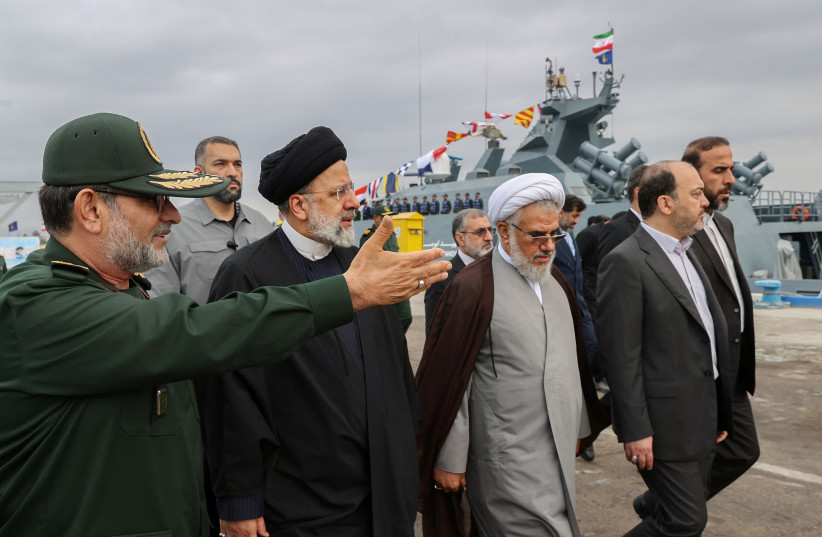The fall of the Iranian regime is inevitable – opinion
In the contemporary discourse of Middle Eastern politics, two contrasting narratives are becoming increasingly apparent. On one side, there stands Israel, a nation consistently thriving amid adversity, its democratic institutions and technological advancements positioning it as a beacon of stability and innovation in a volatile region. This resilience is not just a testament to its robust internal policies but also to its adept handling of external threats and challenges.
On the other side of the spectrum, the supreme leader of Iran’s regime and his theocratic governance are evidently in a decline, marred by internal discontent and international condemnation. The regime in Tehran faces mounting challenges, from crippling sanctions and a deteriorating economy to widespread protests demanding civil liberties and government accountability. This stark contrast between a thriving democratic state and a theocratic regime in decline underscores the shifting dynamics of power and influence in the Middle East, painting a complex picture of resilience and resistance in the face of overwhelming odds.
Misguided narratives in Western academia: Currently, American universities are witnessing a disturbing trend where Islamic lobbies, subtly infused with communist ideologies, manipulate emotional and adventurous students. These groups orchestrate vulgar and meaningless spectacles against Israel and global Jewry. The essence of these orchestrated movements is not to enlighten or educate but to exert undue pressure on Israel, with the ultimate aim of isolating and demonizing the nation.
Khameini is treated with undue respect
The global silence on Hamas and Iranian regime aggression: It is notably concerning that while these academic protests flourish, global responses to Hamas’ provocations and the broader terrorist network supported by Iran are tepid at best. International forums and media largely overlook the egregious actions of Hamas and fail to hold the Islamic Republic accountable for its continued sponsorship of terrorism. This selective outrage is a stark reflection of misplaced priorities in global diplomacy and media, where the voices that should advocate for peace and justice are paradoxically silenced.

The predominantly leftist media outlets have played a pivotal role in shaping a narrative that often favors the oppressor under the guise of fighting imperialism. The dangerous ideologies of radical Islam and the nefarious activities of groups like the Quds Force, part of the Islamic Revolutionary Guard Corps (IRCG) are routinely underreported. This bias extends to the portrayal of figures like Supreme Leader of the Islamic Republic of Iran Ali Khamenei, who despite their clear support for global terrorism, are treated with undue respect and legitimacy by international media.
History and current events suggest that Khamenei’s rule is unsustainable. By August 6, Khamenei will have been in a position of power for exactly 35 years, neither elected by the people’s vote nor removed from office. This tenure eerily mirrors the ominous 36-year reign of the Qajar Sultan Mohammad Ali Mirza Kajdar. Just as the late period of Fath-Ali Shah’s rule brought severe economic troubles that pushed Iran to the brink of collapse, Khamenei’s era has seen similar challenges.
The regime’s lack of legitimacy and popularity among Iranians, coupled with severe economic downturns and environmental crises, point towards an impending collapse.
Its stubborn adherence to a foreign policy marked by terrorism further alienates it globally, setting the stage for its eventual downfall. This forecasted decline draws parallels to historical declines, where prolonged mismanagement and disconnect from the populace inevitably led to regime change following leadership crises.

WHILE IRAN grapples with the consequences of its actions under Khamenei’s regime, Israel continues to solidify its place as a permanent and stable fixture in the Middle East. The stark contrast between the progressive endurance of Israel and the regressive governance of Iran underscores a broader geopolitical shift, signaling a realignment of power and influence in the region.
Israel, with its commitment to democratic principles and technological innovation, exemplifies adaptability and foresight in governance. In contrast, Iran’s adherence to a rigid and oppressive system results in economic stagnation and societal unrest.
The young generation of Israel watching this unfold is likely to witness the dismantling of the outdated and oppressive caliphate envisioned by Iran’s current leaders. This unfolding scenario offers a lesson in the resilience and triumph of progressive governance over authoritarianism. The fate of groups aligned with Khamenei’s ideologies will likely mirror the ignoble end of figures such as former Libyan dictator Muammar Gaddafi, serving as a stark reminder of the inevitable failure of oppressive regimes that fail to serve the interests of their people.
By observing these unfolding events, the international community must recalibrate its perceptions and recognize the resilience of Israel amidst the tumultuous landscape of Middle Eastern politics.
It is imperative for global actors to understand the long-term implications of these shifts and support the processes that foster stability and peace in the region.
The writer is a counterterrorism analyst and Middle East studies researcher based in Washington, with a particular focus on Iran and ethnic conflicts in the region. His newly-published book is The Black Shabbat, published in the US. Follow him on X @EQFARD and at erfanfard.com





Comments are closed.